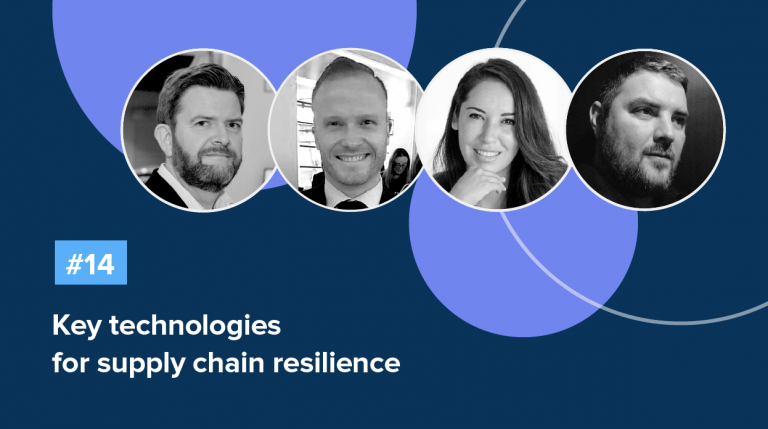Forbes: The 30 Under 30 Asia Entrepreneurs Bringing Traditional Businesses To The Digital Age
Asia is home to many factories and small businesses, but not all of them have caught up with the digital age yet due to the lack of tailored services. For many of this year’s young entrepreneurs in the Industry, Manufacturing & Energy categoryof the Forbes 30 Under 30 Asia list, developing such online tools for improved efficiency is a top priority.
In Indonesia, Marius Suntanu is giving the traditional catering industry a digital lift. He has always been fascinated by food—the way it is cooked, the way it is served and the way it tastes. As a child, he would shadow his aunt around the kitchen as she prepared family meals. “Food was always something that I loved,” he says. Fittingly, the 30-year-old ended up cofounding a Jakarta-based online catering service, Yummy Corp.
Yummy now employs 600 people and serves up 14,000 meals a day in Jakarta and the nearby city of Tangerang. Last year, it raised a total of $7.8 million in second-round funding from investors led by Indonesian VC firms SMDV and Intudo Ventures, which it will use to expand the number of its kitchens fourfold to 200. Recommended For You
Suntanu started down a different path, however, earning a degree in architecture from the University of San Francisco. After graduating in 2013, he returned home to Indonesia and was hired as an architect for the Indonesian lifestyle company Potato Head Family, which runs a number of high-end restaurants and hotels.
Most catered food, Suntanu felt, was uninteresting and of average quality. In 2017, he set out to change that, joining his two brothers, Mario and Marbio, as well as veteran caterer Daisy Harjanto Tan and Juan Chene, the former managing director of online delivery service Food Panda Indonesia, to launch Yummy.
Yummy not only cooks and delivers its own food through an online app—it cooks and delivers food for others. Through the company’s app, Yummybox, retail customers can order a range of set lunches, including local Indonesian, Chinese, Greek, Filipino and Middle Eastern. Last month, Yummy began offering dinner and is now planning to expand to breakfast.
Yummy also manages kitchens and cafeterias for a range of corporate clients, including Unilever Indonesia. And from its kitchens, Yummy prepares and delivers meals for other restaurants and caterers. Each kitchen prepares food for delivery to diners within a 5km radius. Once it expands to 200 kitchens from 50 today, Suntanu estimates Yummy will be able to prepare and deliver a million meals a day.
“We create a new spin on food facility management,” says Suntanu. “Our aim is to deliver exceptional food solutions for wide range of needs.”
The catering industry also attracted the attention of South Korea’s Gyungyul Kong. His startup Retail Young operates a mobile app called Foodpang through which restaurants can order ingredients directly from farmers. By streamlining the supply chain and removing traders and retailers, Kong says farmers can receive more profits. Currently, more than 1,000 restaurant owners use Foodpang.
Meanwhile in India, Abhishek Goel and Samarth Setia cofounded Mr.Milkman, a SaaS platform that helps Indian dairies of all sizes efficiently manage their daily end-to-end operations, gather data and track performance. The platform also allows dairies to keep track of their operational processes by reporting anomalies and providing extensive reports. Currently, it works with about 50 milk brands and dairy farms across India, including Milk Mantra, Whyte Farms and Yakult.
Manufacturing 2.0
Through tailored software, young entrepreneurs are upgrading traditional manufacturing as well. With the goal of digitalizing China’s textile industry, Zhou Wenyu cofounded Youshupai in 2017. The SaaS startup develops tracking and management software for retailers and textile factories, helping companies manage inventory as well as write electronic contracts through its mobile app.
In India, Ranjith J N and Hemalatha Kanneganti set up Fabric Monde in 2017 to connect small scale handloom and textile manufacturers to top brands and large urban markets. Fabric Monde has a supply chain in six Indian states and works with 450 small and medium handloom and textile manufacturers.
Weavers use an app to upload their swatches, which buyers can see before ordering. Through Fabric Monde’s app, suppliers can manage their inventory and access credit. Some of Fabric Monde’s clients include Japanese retailer Muji, the Raymond Group and True Blue, the clothing venture between cricketer Sachin Tendulkar and Arvind Fashions Brands.
“With advances in technology and internet penetration, the adoption of mobile commerce within businesses is evident in the coming years,” says Kanneganti. “What struck me was the absence of a place for the textile industry to ride the internet wave.”
Logistics is another sector that the entrepreneurs on this year’s 30 Under 30 Asia list are disrupting. In Japan, Ken Matsushita founded Optimind to produce AI software to help logistics and delivery firms move shipments and packages more efficiently in the last mile. Backed by the government-affiliated J-Startup program, Toyota Motor and other firms put in ¥1.1 billion ($10.5 million) in Series-A funding in October.
Singapore’s Jonathan Savoir is also employing AI to develop new services for logistics firms. By utilizing natural language processing and machine learning, Savoir’s startup, Quincus, helps logistics companies operate more efficiently with its integrated supply chain management platforms
Subscribe to keep up with our latest news








